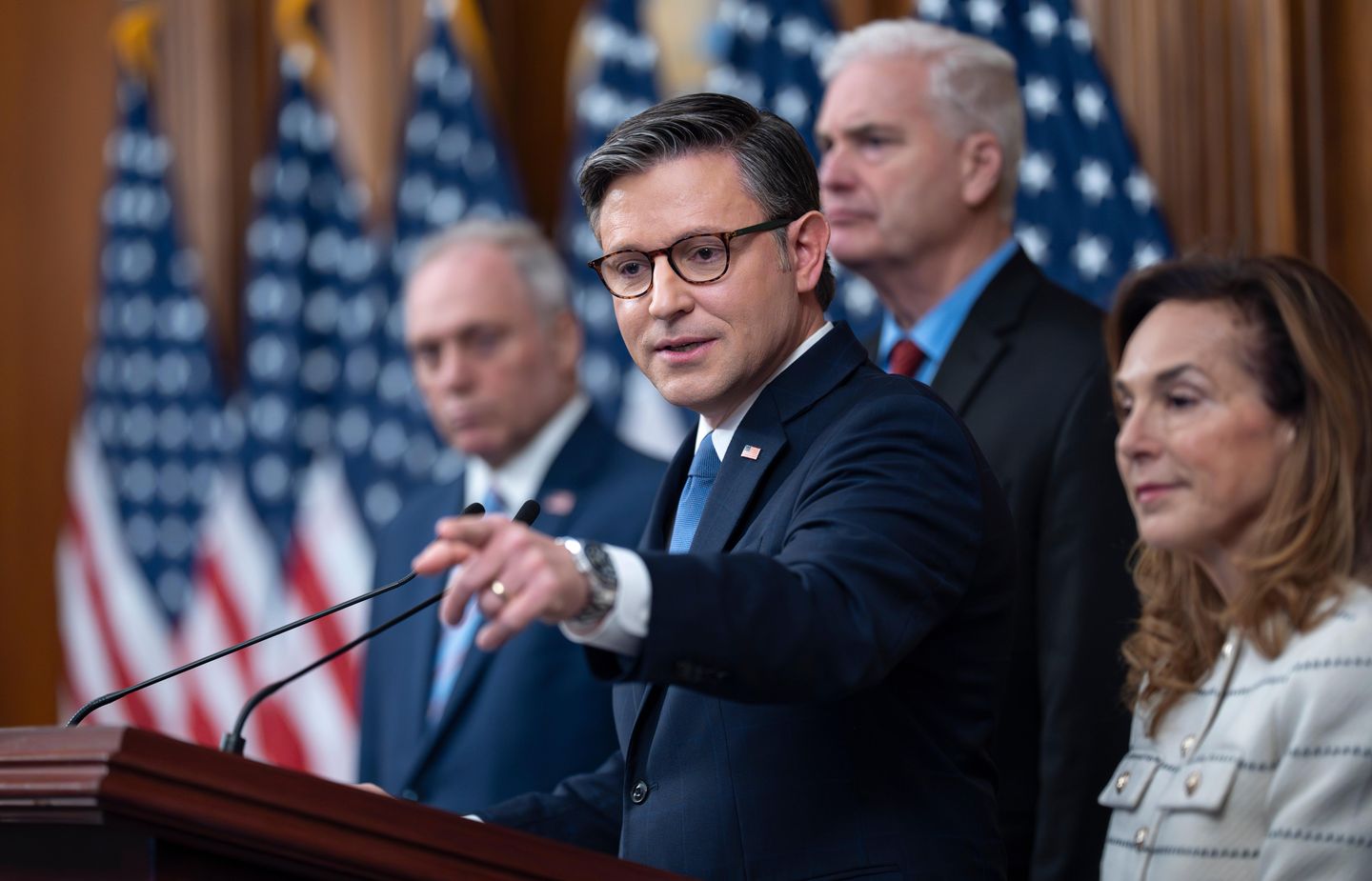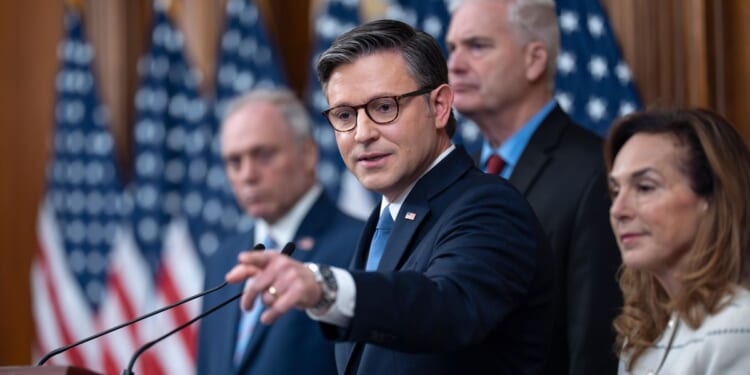
House Speaker Mike Johnson said Monday that a COVID-era expansion of Obamacare premium subsidies Democrats want to extend is a “boondoggle,” and there is no quick fix Congress can enact.
“It’s become a boondoggle. It’s a subsidy for insurance companies,” Mr. Johnson, Louisiana Republican, said. “When you subsidize the health care system and you pay insurance companies more, the prices increase. That’s been the problem. So if indeed the subsidy is going to be continued, it needs real reform.”
Democrats shut the government down over their demand for a bipartisan health care negotiation involving the enhanced Obamacare subsidies and say they won’t reopen it without an extension of the COVID-era policy set to expire this year.
“Tens of millions of Americans will see their insurance payments increase by thousands of dollars per year, in an environment where the cost of living is already too high,” House Democratic leader Hakeem Jeffries of New York said in a Saturday letter to his caucus. “That is why we must extend the Affordable Care Act tax credits immediately.”
Democrats’ COVID-era expansion of the subsidies capped out-of-pocket premiums at 8.5% of household income and allowed families earning above 400% of the federal poverty level to access the benefits.
Letting those enhancements lapse would “more than double what subsidized enrollees currently pay annually for premiums — a 114% increase from an average of $888 in 2025 to $1,904 in 2026,” according to KFF, a nonprofit health policy research, polling and news organization.
The speaker and most Republicans have said they oppose extending the COVID-era expansion of the Obamacare subsidies without significant changes. It’s unclear exactly what their demands will be because they’re refusing to negotiate with Democrats on the matter until the government is reopened.
Mr. Johnson said Republicans have probably 100 different ideas on how to fix it and that it’s “impossible and inappropriate” to have that debate as part of a stopgap government funding measure Democrats are filibustering.
“That requires the month of October and probably part of November, to get the consensus built around that,” he said.
While the enhanced subsidies don’t expire until the end of the year, Democrats want a resolution before Obamacare open enrollment begins Nov. 1. The Congressional Budget Office says legislation to extend the subsidies would not have an impact on premiums after that date.
Insurers have largely locked in premium rates for 2026, which will increase regardless of what happens with the subsidies because of other factors, like inflation, labor costs and drug prices.
KFF said insurers in the Obamacare marketplace have proposed an average rate increase of 20% for 2026, only 4 points of which can be attributed to the pending expiration of the enhanced Obamacare subsidies.
Mr. Johnson said the continued increases in health care premiums are a sign that “Obamacare failed the American people.”
“It was promised to be a great success, to make health care more affordable,” he said. “It’s done exactly the opposite.”
The speaker said Republicans have plans to improve the access and quality of health care they believe have suffered under Obamacare, but that likely won’t involve getting rid of the law altogether.
“Can we completely repeal and replace Obamacare? Many of us are skeptical about that now, because the roots are so deep,” Mr. Johnson said. “It was really sinister, in my view, the way it was created. I believe Obamacare was created to implode upon itself, to collapse upon itself.”
Mr. Jeffries has repeatedly said Republicans have “zero credibility” on health care after they’ve spent the past 15 years trying to dismantle Obamacare. He said that’s why Democrats don’t trust Republicans to negotiate once they reopen the government.
“We have to address the health care crisis that they’ve created decisively,” Mr. Jeffries said Friday. “That means legislatively, and that means right now.”
Republicans tried and failed to replace Obamacare for years, most infamously during President Trump’s first term in 2017.
“I still have PTSD from the experience,” Mr. Johnson said. “John McCain famously did the thumbs down, and effectively by a one-vote margin, the whole effort was defeated. It’s a great frustration of mine and has always been of President Trump’s.”
The failed 2017 effort has led Republicans to largely give up on repealing and replacing Obamacare, even as they continue to call for “dramatic reform” of the American health care system, as the speaker put it.
“We have lots of ideas on how to fix it, but it is very, very complicated,” Mr. Johnson said, noting that roughly 15% of the U.S. economy is entwined in the health care system. “You can’t just rip it out at the roots and start over.”










